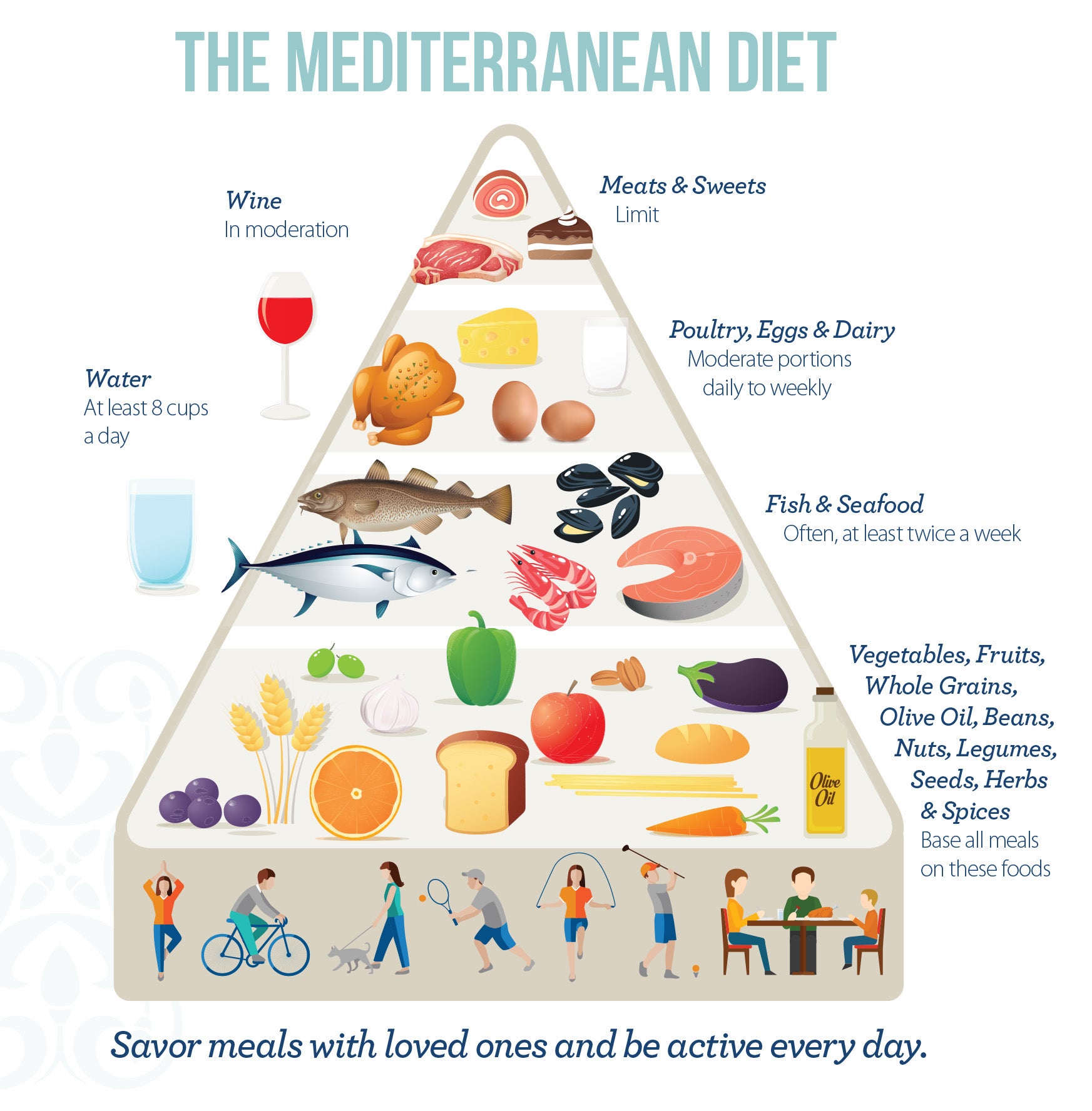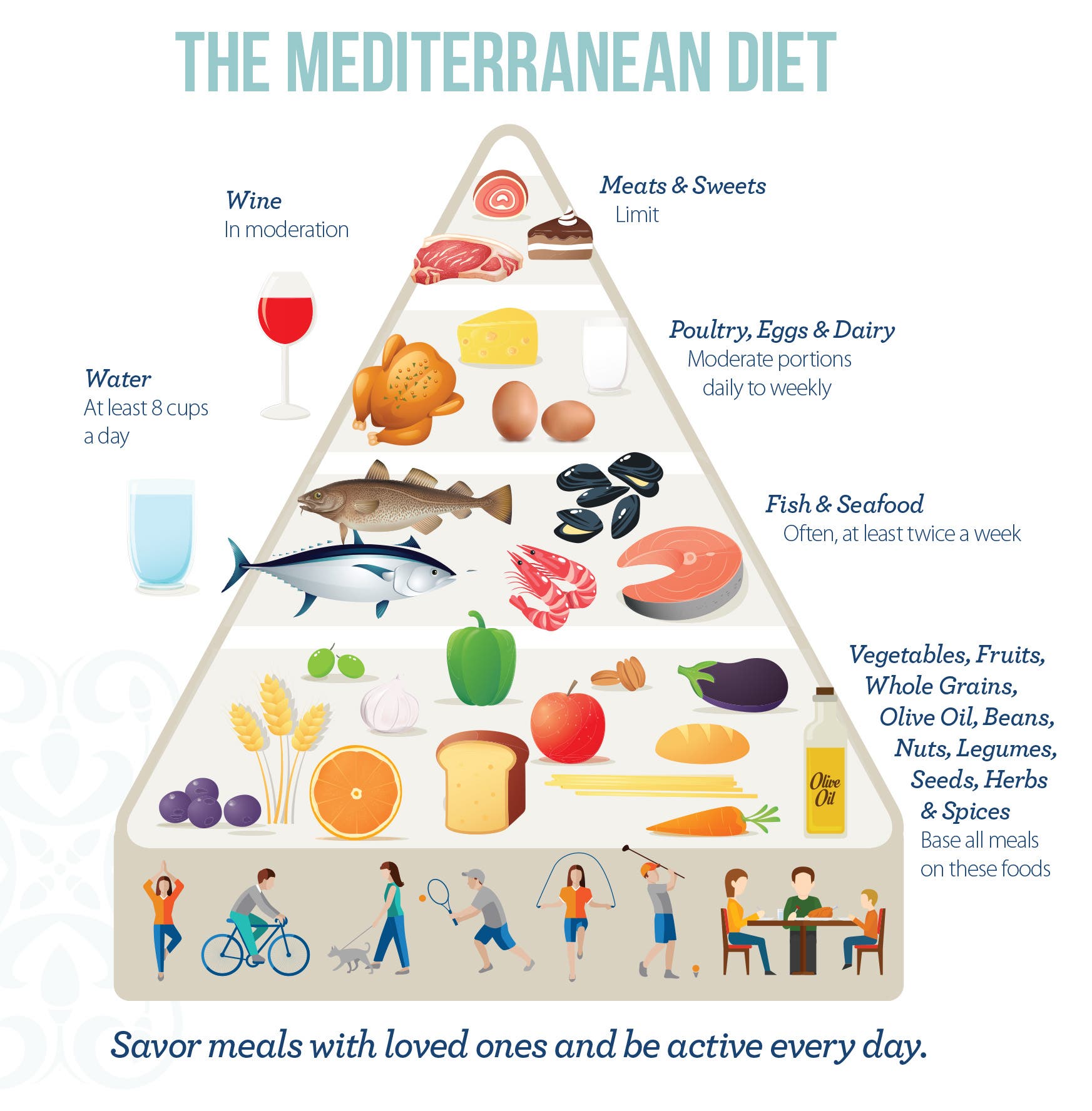Why Eating Mediterranean Makes Sense

Who knew that a drop of olive oil would cause so many ripples? More than 50 years ago, American scientists discovered that the ubiquitous cooking fat in Greece and Italy was part of an overall eating pattern that could help stave off cardiovascular disease and cancer.
Related: 6 World-Class Olive Oils
The Mediterranean diet that sprang up out of that discovery has expanded into a broader concept examined in research such as The Blue Zones (National Geographic Society, 2009), a Dan Buettner book that looks into the lifestyles of five of the healthiest regions of the world (two of those — Sardinia, Italy, and Ikaria, Greece — happen to be in the heart of the Mediterranean) and how consuming pure, unprocessed foods can be one of the keys to becoming a centenarian.
How? The repetitive DNA sequences at the ends of your chromosomes are called telomeres, and the longer your telomeres, the longer you live. Studies have shown that foods prevalent in the Mediterranean diet — fruits and vegetables, beans, whole grains, seafood and healthy fats — are associated with longer telomere length. (People in the Blue Zone regions, for the most part, also consume dairy along with local animal protein in smaller amounts.) A near mirror image of the Clean Eating diet.
More than a Diet: Living the Healthy Mediterranean Lifestyle
Embracing this lifestyle turns you anything but blue, however. Other studies reveal that the Mediterranean diet can also reduce the incidence of depression. Your thoughts are brighter and your heart is stronger through the simple act of choosing what grows from the ground and swims in the sea instead of what sits on a grocery store shelf.
But preventing disease isn’t all about food. As Buettner explains in The Blue Zones, a sense of humor helps, as does a sense of purpose in life, exercise and strong social circles. So when gathering your circle of friends, it makes sense to consider the full circle of the Mediterranean diet and reach for the superfood that was just shown to kill cancer cells: extra-virgin olive oil.

Here are the top 20 superstars in the Mediterranean diet that can help you stave off disease and live longer:
How the Mediterranean Diet Was Born
The way folks eat in the Mediterranean region was first made famous by researcher Ancel Keys, PhD, who in the 1950s launched what’s known as the Seven Countries Study, examining the relationship between diets in various countries and their prevalence of heart disease. Both Greece and Italy made the list of the lowest instances.
Keys has since been criticized for his flawed study techniques, however, he helped to bring attention to the Mediterranean diet pattern that has consistently helped to stave off disease.
Related: Eat to Live Longer
Fast-forward to the 1990s, the not-for-profit food and nutrition education organization Oldways, the Harvard School of Public Health and the European Office of the World Health Organization took the dining habits prevalent in Greece and Italy in the early 1960s and expanded them into a Mediterranean diet pyramid. (For more info, visit oldwayspt.org.)
The Mediterranean diet differs from MyPlate, the USDA’s dietary guide, in that it’s not about measuring serving sizes – rather, it’s about eating high-quality, nutrient-dense foods. Sounds pretty similar to Clean Eating, right?